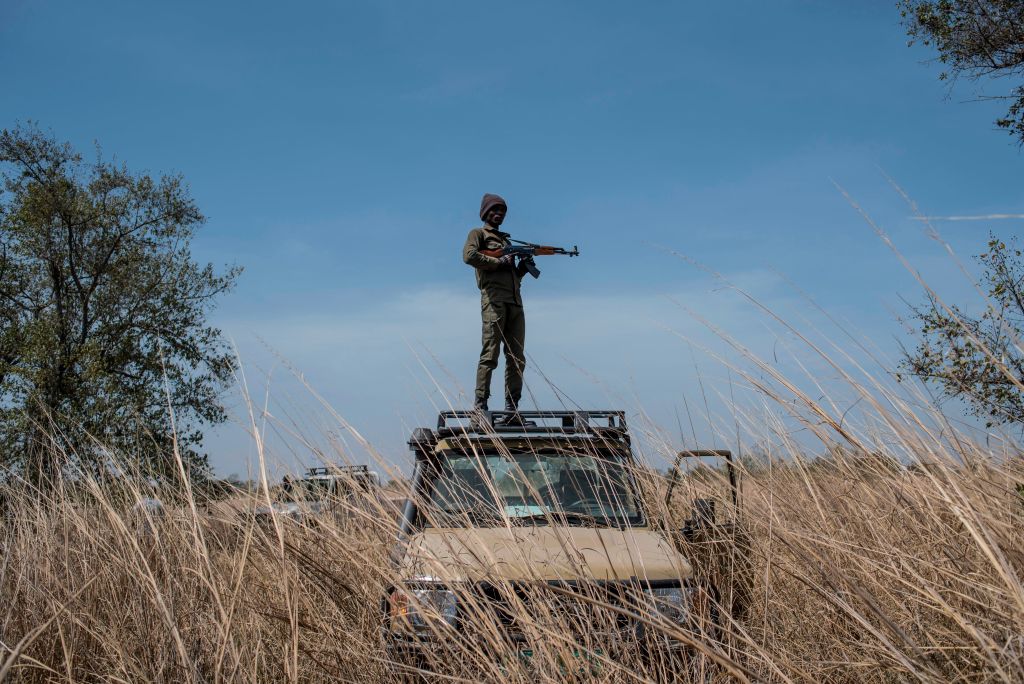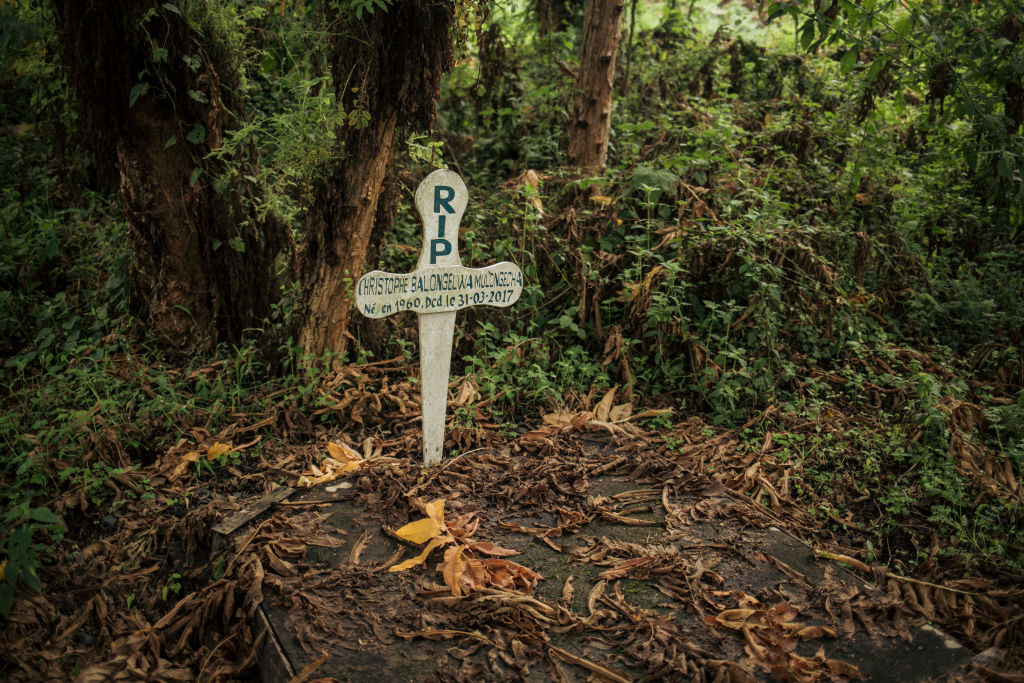Park Rangers Seek New Training as Threats Multiply
ADF STAFF
Founded in 1925, Virunga is Africa’s oldest national park. It is one of the continent’s most biologically diverse conservation areas and is home to one-third of the planet’s endangered wild mountain gorillas.
The park is located in eastern Democratic Republic of the Congo (DRC), where more than 100 armed groups battle Congolese and Ugandan Soldiers, United Nations peacekeepers, local militias and each other.
Virunga has seen a spate of shocking attacks on rangers in recent years, including 19 killed so far in 2022, according to the Thin Green Line Foundation (TGL), an international charity that supports rangers and the families of those who are killed.
“The intensity of the conflict in and around the park makes this a daunting challenge,” Virunga National Park Director Emmanuel de Merode said in an article on the foundation’s website.
The DRC is where most of the foundation’s Fallen Rangers Fund goes.

Armed groups regularly use Virunga as a shelter, battlefield, smuggling route and source of raw materials.
Poaching for bushmeat is a significant source of revenue, as insurgents have killed thousands of hippos in the last decade. Gorillas have been hunted as well.
Another revenue stream is the sale and taxation of “Makala,” or charcoal, produced by illegally burning trees in the park.
Recognizing the increasing danger in 2010, the Congolese Institute for the Conservation of Nature (ICCN) created its Quick Reaction Force (QRF), a paramilitary unit of 270 elite rangers who occasionally are deployed offensively.
Because they often cooperate with Congolese Soldiers operating in the park, rangers have become targets for retaliation, according to researcher Christoph Vogel, a former member of the U.N. Group of Experts on the DRC.
“The park believes, rightly, that rangers are not legitimate targets under international humanitarian law,” he told the Kivu Security Tracker, a regional conflict monitoring tool. “But the specific status of the QRF and the nature of their operations places them in a gray zone.”
Linda Nunn, vice-president of the International Ranger Federation, has worked closely with Virunga’s rangers to protect mountain gorillas.
“ICCN rangers have received many awards for their courage over the years,” she told TGL. Their bravery and dedication to duty is legendary.
“In Virunga, ICCN traditionally names newborn gorillas after fallen rangers.”
Virunga is typical of parks across the continent, where militant groups and violent extremist organizations are targeting rangers.
Dr. Niall McCann, director of conservation at National Park Rescue in Zimbabwe, says park security has had to keep up with the threat.
“Anti-poaching isn’t becoming more ‘militarized’ because of jihadi terrorist groups,” he wrote for Mongabay conservation news website, “it is becoming more ‘professionalized’ because the threat to wildlife and to rangers has increased, and because we are running out of time to save the most valuable species and landscapes on Earth from determined criminals.”
Rangers originally trained for traditional conservation work such as ecological surveys now require a new kind of training.
While many countries lack the resources for their rangers’ combat-oriented responsibilities, the United States has worked directly with parks services in countries including Chad, Gabon, Kenya, Tanzania and Uganda to train them.
Another example of the changing landscape is the recent expansion of African Parks, a nonprofit conservation organization that manages 16 national parks in 10 countries and seeks to add 30 more parks on the continent by 2030.
African Parks uses ex-military officers from South Africa and Europe to train rangers to handle threats posed by heavily armed militants and poachers.
In discussing encounters with terror groups in W National Park in northern Benin, Chief Operations Officer Charles Wells notes that African Parks’ mandate is “ensuring park integrity and countering all threats to it.”
“This is an extreme situation, where both the national security as well as the last functioning conservation system at scale in West Africa are at grave risk,” he told Reuters.
This is the second story of a two-part series about the dangers faced by park rangers across Africa.


Comments are closed.